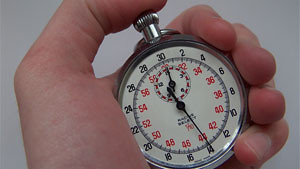When you were younger, who were your role models? Did you want to be more like your mother? Father? A teacher? Maybe it was a celebrity or person in history that you wanted to be just like. Or even a fictional character in a book or TV show. We choose role models because there is something about them we want to emulate. Many children go into Mommy’s and Daddy’s closet and put on their clothing, accessories, makeup; they practice being just like them in the future. And what was it about that role model that captured your interest? A little girl might admire in Hermione Granger (from the Harry Potter books) her intelligence, as well as a certain noble spirit. A young boy covers his room in Superman decor because he hopes to be strong and brave one day. A young woman in a university pre-law program doodles “RBG” on the front of her notebook, dreaming that she will have the dedication to make an impact in a male-dominated courtroom, earning her respect and maybe even a future seat on the Supreme Court. Each of them may find themselves thinking “If only I could one day have [brains/courage/commitment] like them…,” completely missing that “one day” perhaps isn’t as far away as they believed.
I had a music teacher when I was younger who would check whether instruments were in tune using a more old-fashioned method that I’d seen. Before the era of digital tuners, musicians and manufacturers would strike a tuning fork (pictured below) against a hard surface, causing it to emit a particular tone. The tone is constant every time, its pitch determined in the fork’s construction by tine size and material. Older tuning forks cannot have their pitch adjusted without changing the shape, resulting in a permanent alteration. It is perhaps because of this that tuning forks demonstrate an interesting property.

If you take two tuning forks that are built for the exact same pitch and place them in close proximity to each other, you could perform a feat similar to an effect seen in stage magic. Strike one of the forks, wait until you hear the steady tone, and then hold the prongs so they stop vibrating. You will continue to hear the tone, coming from the other fork. This is a harmonic phenomenon known as sympathetic resonance. The waves coming off the struck fork travel through the air and cause the other fork to begin vibrating, continuing the tone without having been physically touched (except by air). This cannot be done with any two random tuning forks, it will only work with a matched pair. If one of the forks is tuned even a half-step off, the second one will not resonate. It only responds to what it already is.
In the same way, in order for you to recognize a trait or quality in another person, it already must exist in some form within yourself. It may be buried at an unconscious level, or happen when you’re not paying attention, but you have the capacity for that trait you have admired in that other person. If you did not, you would not be able to mark it in them or know what it is. So when you remark to yourself how brave that person is for standing up for what’s right, or how kind your neighbor is to even the rudest person, that quality is resonating with the like quality you already hold within.
In what ways are you already resonating in harmony with the people in your life, and how will your example inspire the beautiful music in others?



